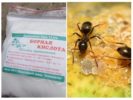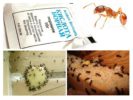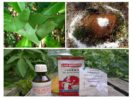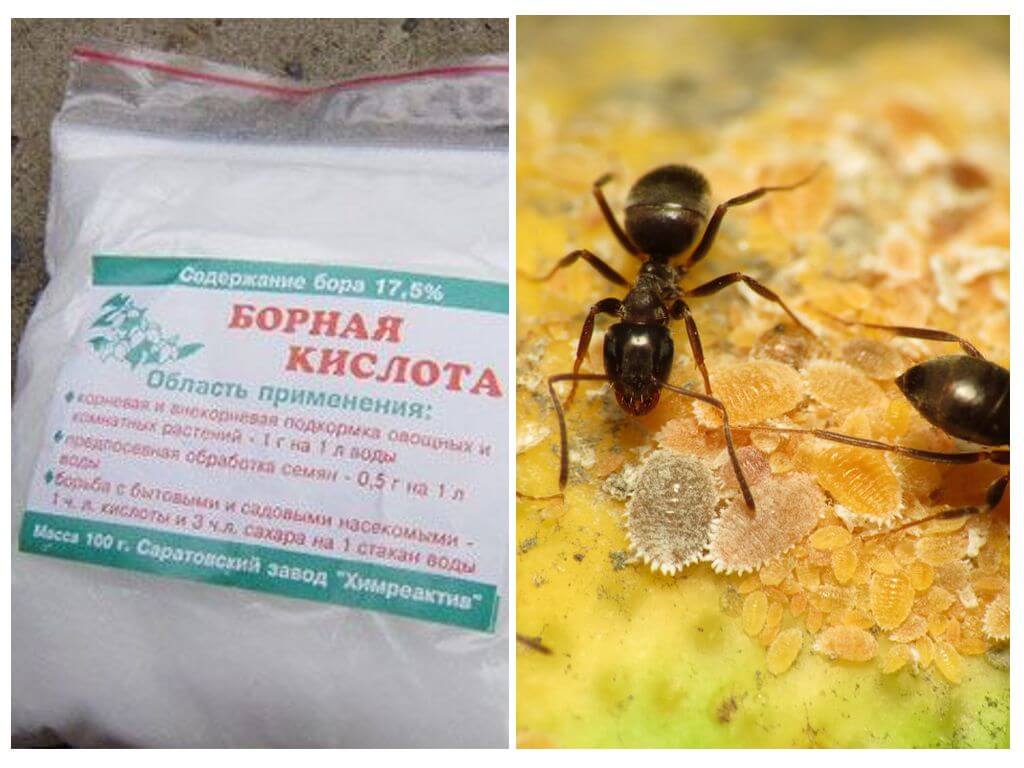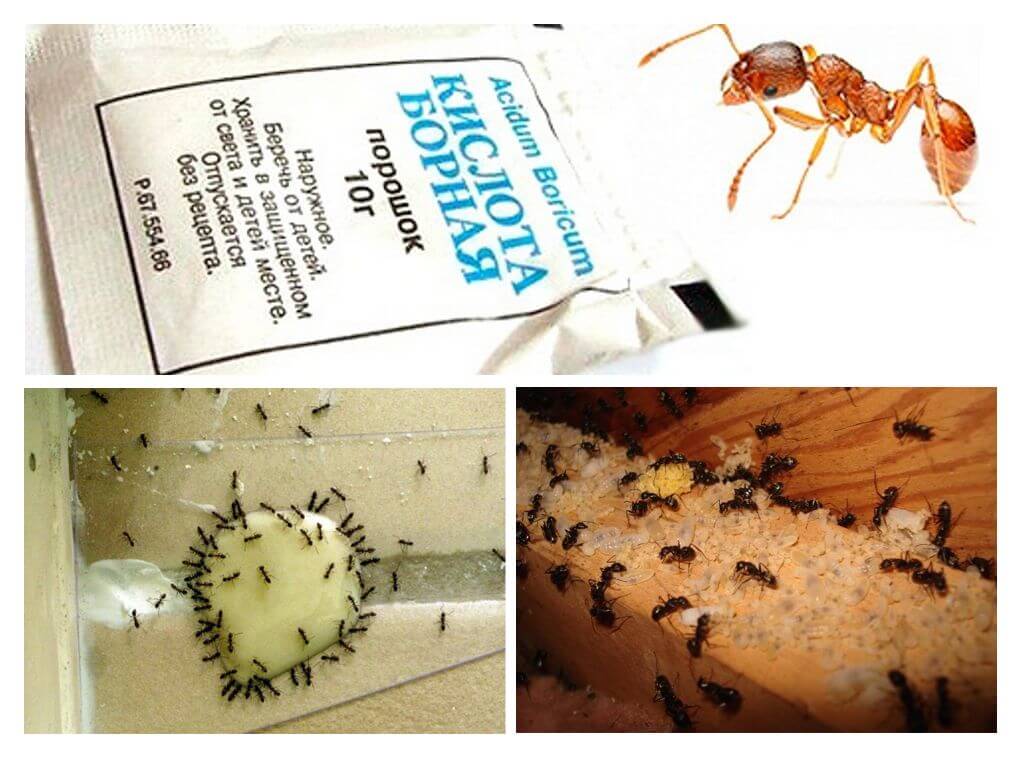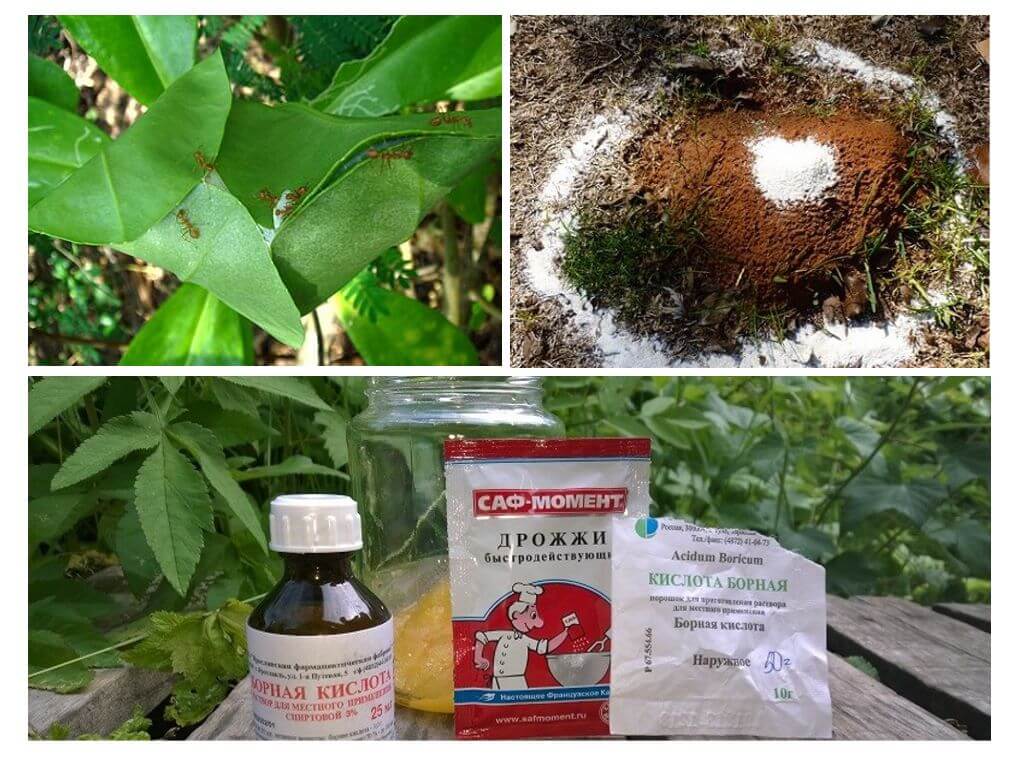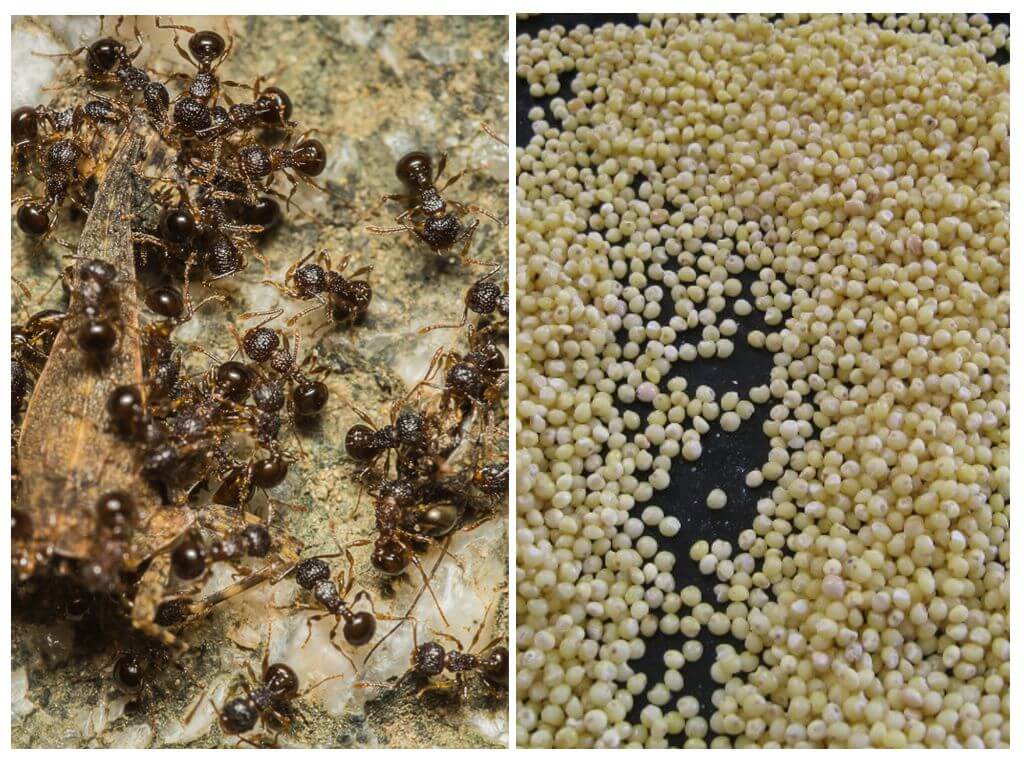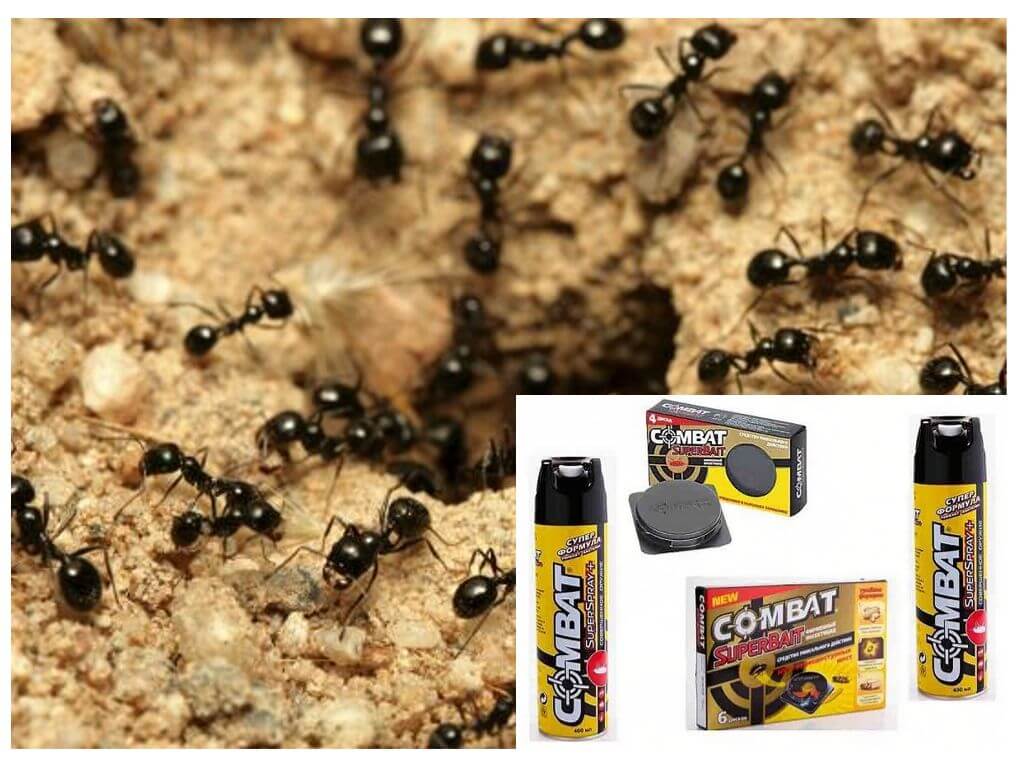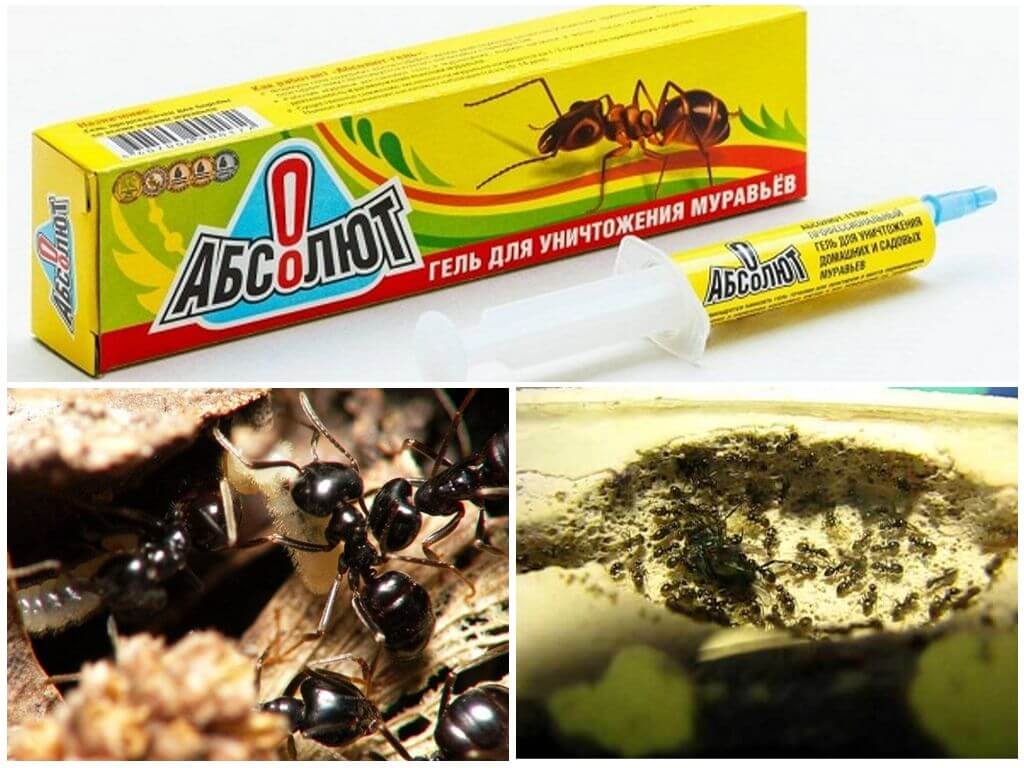- Boric acid from ants
- Destruction of ants at home
- Fighting ants in the garden
With the advent of brown or red ants had to face many people. Insects usually settle where there are favorable conditions for their existence: humidity, heat and food. Therefore, most often ants can be found in the kitchen or in the bathroom. While there are few insects, their presence is not always always noticeable. The increase in the ant family in the apartment is a serious problem for every housewife. Not everyone can use chemical preparations for this purpose. Some have small children in the house, others have pets, and still others are allergic. Not the best way to use chemistry on a garden plot. In such cases, many use folk remedies. One of them is boric acid from ants, this is the most effective and safe method of pest control.
The properties
Get rid of the ants in the house boric acid will help. This is a wonderful antiseptic that people have been using since ancient times. It was used not only for treating wounds, but was also taken inside. After a while, people were able to determine that this tool is not completely excreted by the kidneys. And with regular use, it accumulates in the body and becomes very toxic. As a result, the acid began to be used for other purposes.
On a note!
The tool has found wide application in industry and science. Many gardeners use it as a mineral fertilizer. This drug stimulates the germination of seeds well and helps to increase productivity. Therefore, boric acid is very often used. from ants in the garden and in the greenhouse.
Boric acid is a white powdery product in which there are no taste and aromatic properties. However, it is not only in powder. There is also liquid boric acid, or rather its solution, which has similar properties. A photo of this substance is presented below.
The result of the fusion of boric acid with sodium compounds is borax. Borax from ants is no less destructive.
First of all, boric acid acts on the nervous system of pests. Once in the body of an insect, it spreads along its peripheral nerves. This leads to serious disturbances in the functioning of the nervous system. The result of which is paralysis and insect death.
Kindred, who have eaten the remains of an ant that has suffered from boric acid, will have the same fate. Therefore, even an entire ant colony can easily be destroyed if around anthill decompose boron poison.
Important!
The use of large amounts of boric acid is dangerous to human health.
You can buy this tool, the cost of which is within 50 rubles, at any pharmacy kiosk (this does not require a doctor’s prescription).
How to use the drug at home
Many people who have encountered such a problem are wondering how to poison pests with boric acid. Getting rid of ants with boric acid is a snap. There are many different variations on the preparation of such a “treat”. Here are some recipes with boric acid from ants in the apartment.
- To prepare the poison you will need the following components: 40 g of sugar, 5 g of acid and a spoonful of honey. All are thoroughly mixed. The resulting mixture is laid out in a plastic container, which is installed next to the bin.
- A spoonful of liquid acid is mixed with the yolk of 2 eggs. Small balls are formed from the resulting mixture. Such bait from boric acid decomposes in places of the greatest accumulation of pests.
- To make poison for ants from boric acid can be done in another way. You need to make mashed potatoes from 2 large potatoes, and mix it with an egg (2 pcs.), 1 tablespoon of sugar and 20 g of boron powder. The resulting mixture is divided into several portions, and distribute them in places of movement of ants.
- Ants can be bred with the help of a poisonous treat, one of the main components of which is jam. Poison is prepared in a proportion of 3 g of boron powder per 1 tablespoon of jam. The mass is laid out in small portions in metal lids and installed in places where insects may appear.
- 4 tablespoons of honey mixed with 1 spoon yeast and 1 sachet of acid. The resulting mixture is applied in a thin layer on lids or plastic saucers.
A remedy with boric acid in a liquid consistency against ants is much more effective. This is evidenced by numerous consumer reviews. You only need to know how to dilute the powder. After all, a properly selected ratio of poison does not help to kill an insect right away, but give it the opportunity to bring the poison to the anthill and treat it to its relatives.
Here is one example of a liquid bait. 5 g of powder and 2 teaspoons of honey are used in a glass of water. Such a "lemonade" is sure to attract the attention of sweet tooth. It must be poured into a flat bowl and placed near an ant nest. Instead of water, you can use various sweet drinks: compotes or diluted syrups.
The easiest way to control is the use of cotton swabs soaked in a solution of boric acid. They are also laid out where there are many insects.
On a note!
The sink, trash bin, crevices in the baseboard and the mixer are the most visited places by ants.
Pest control in the country or in the garden
Boric acid is also used. against ants in the country. These tiny insects are not only sweet tooth, they are very attracted to the smell of meat. Therefore, to prepare the next bait, you must use minced meat. Poison is prepared on the basis of 5 g of powder 2 tablespoons of minced meat. The necessary components are mixed and formed from them balls the size of a walnut. Such protection against garden ants will give a positive result in a few days.
On a note!
This method of combating ants is not recommended for indoor use. Indeed, over time, the meat will begin to exude an unpleasant odor. In addition, pets can enjoy such a bait. The animal is unlikely to recover, but negative consequences are still possible.
